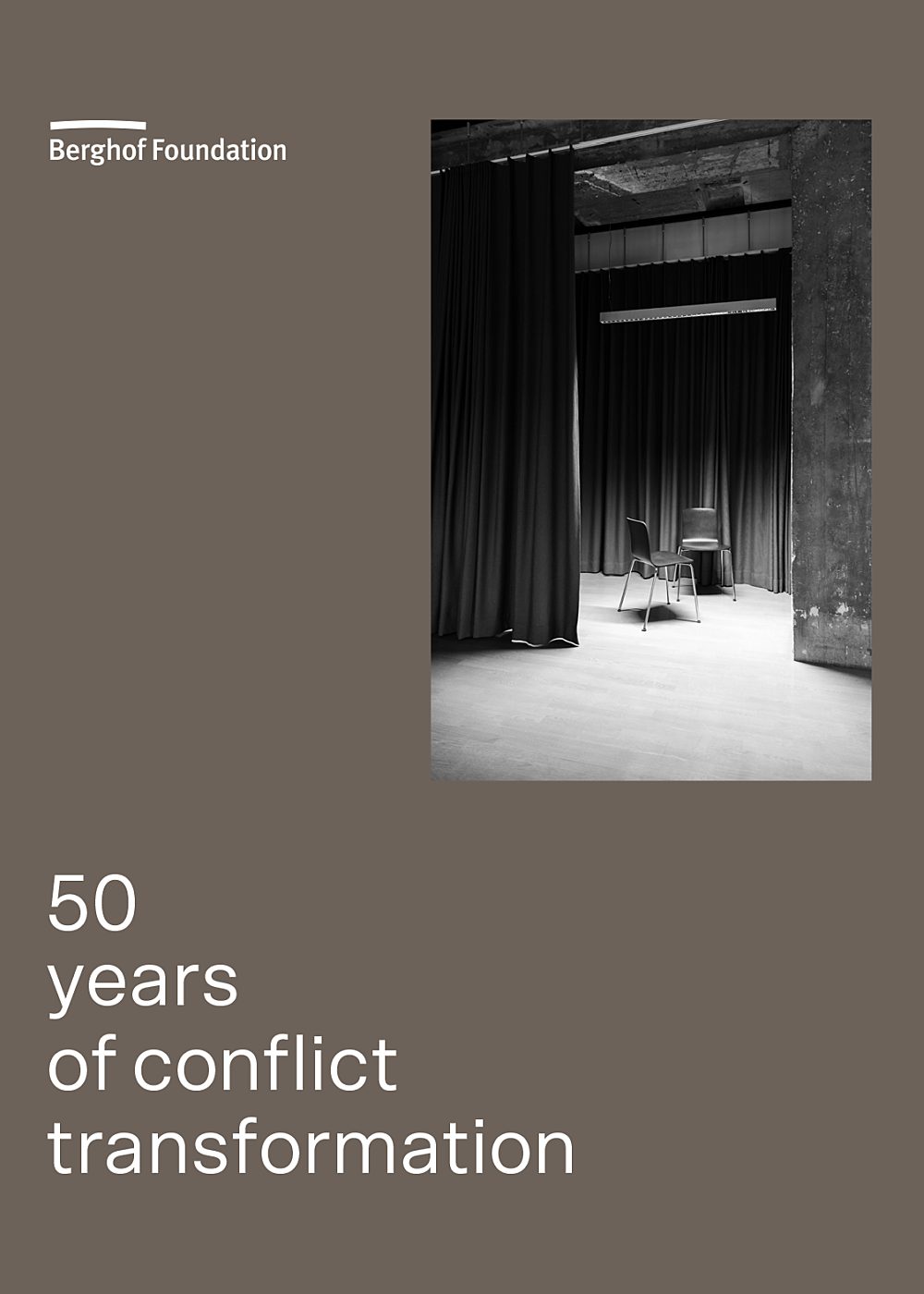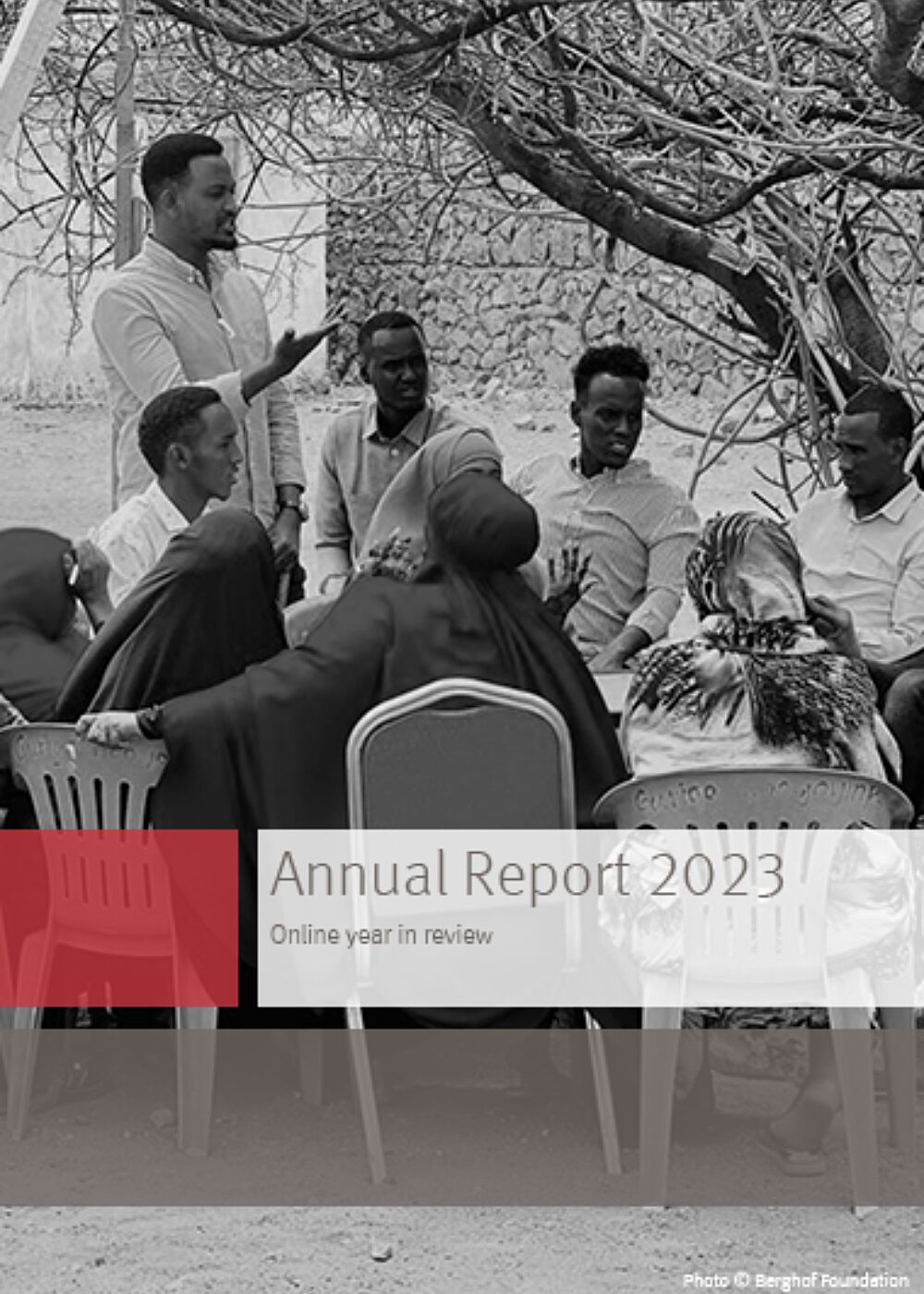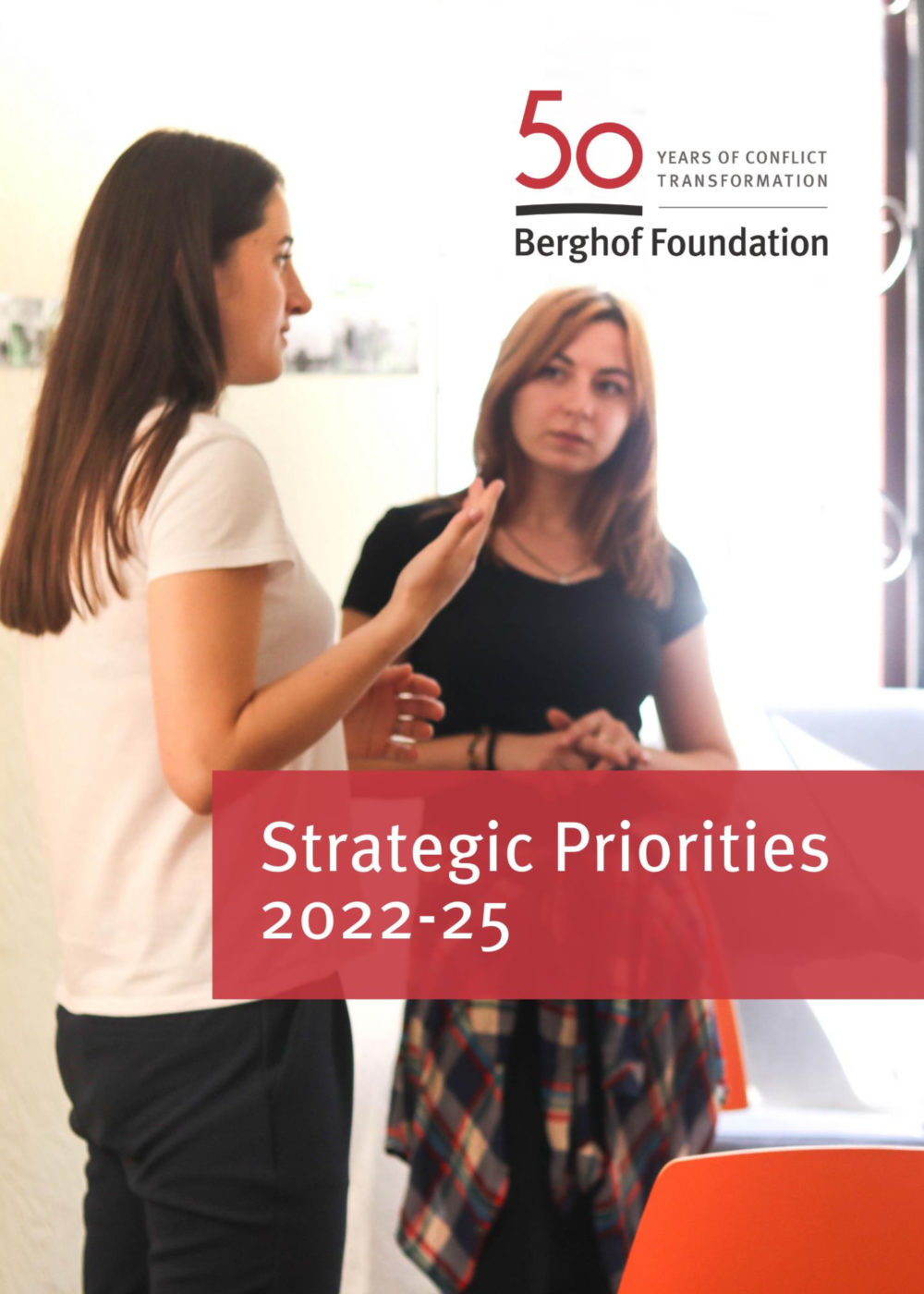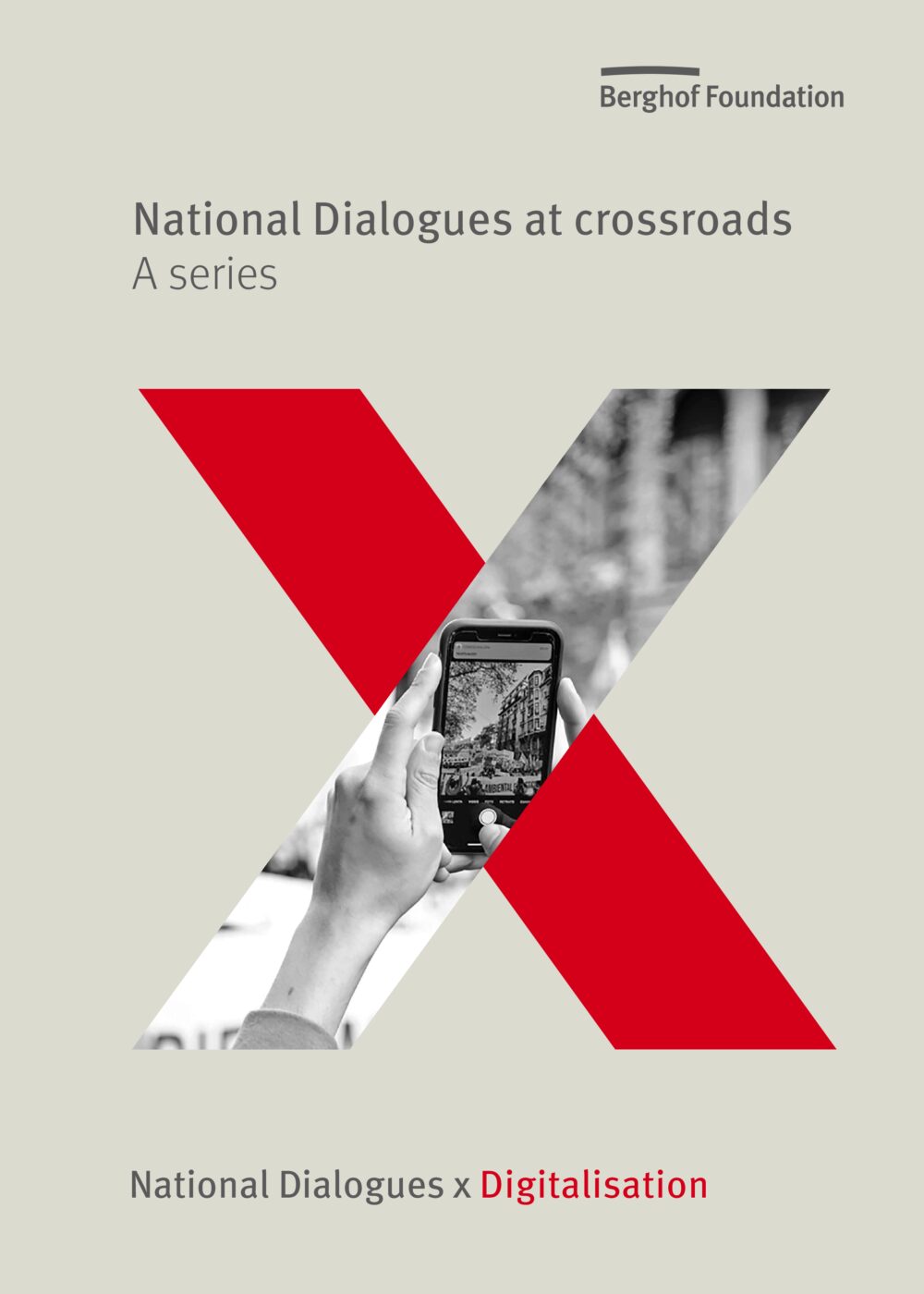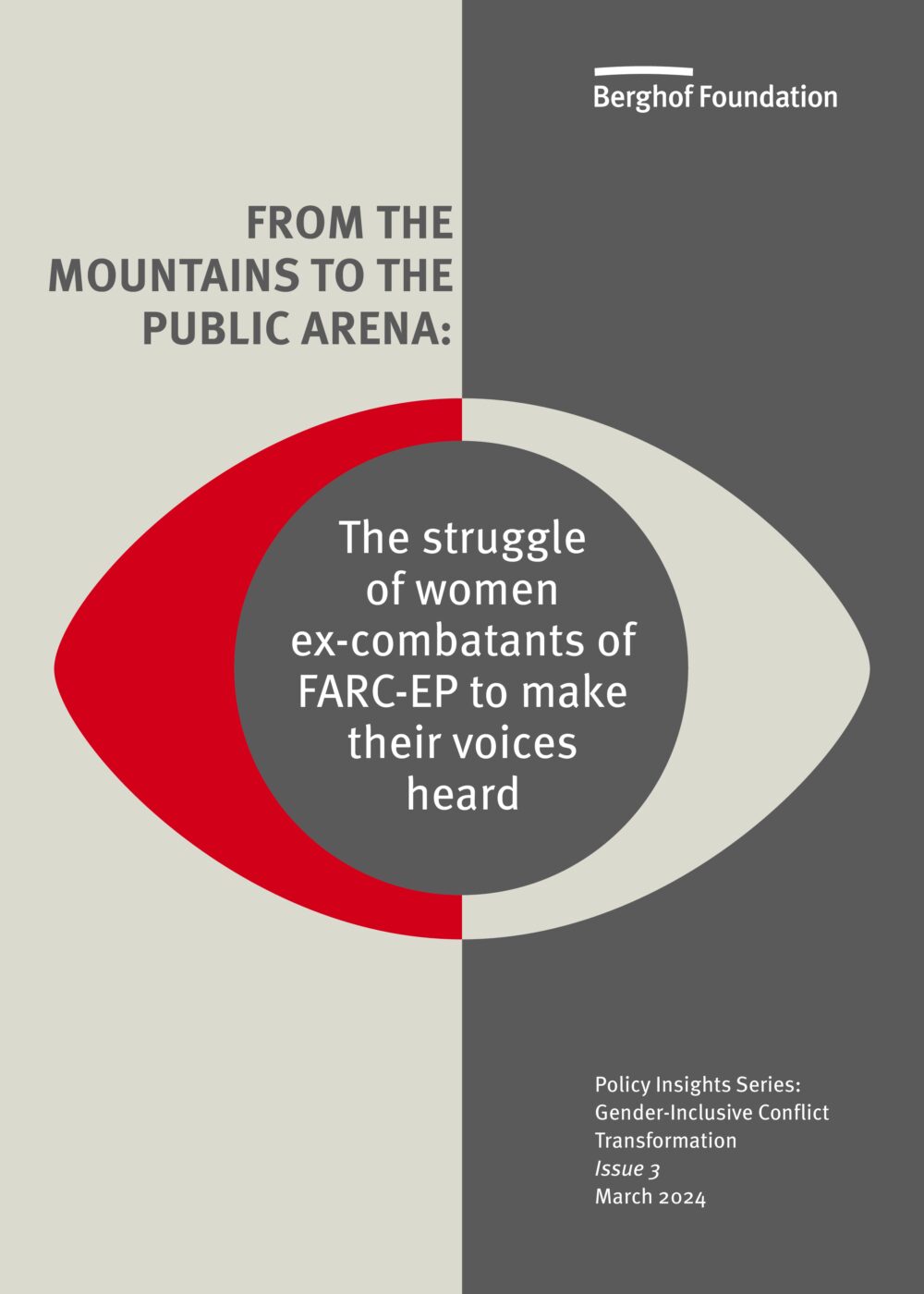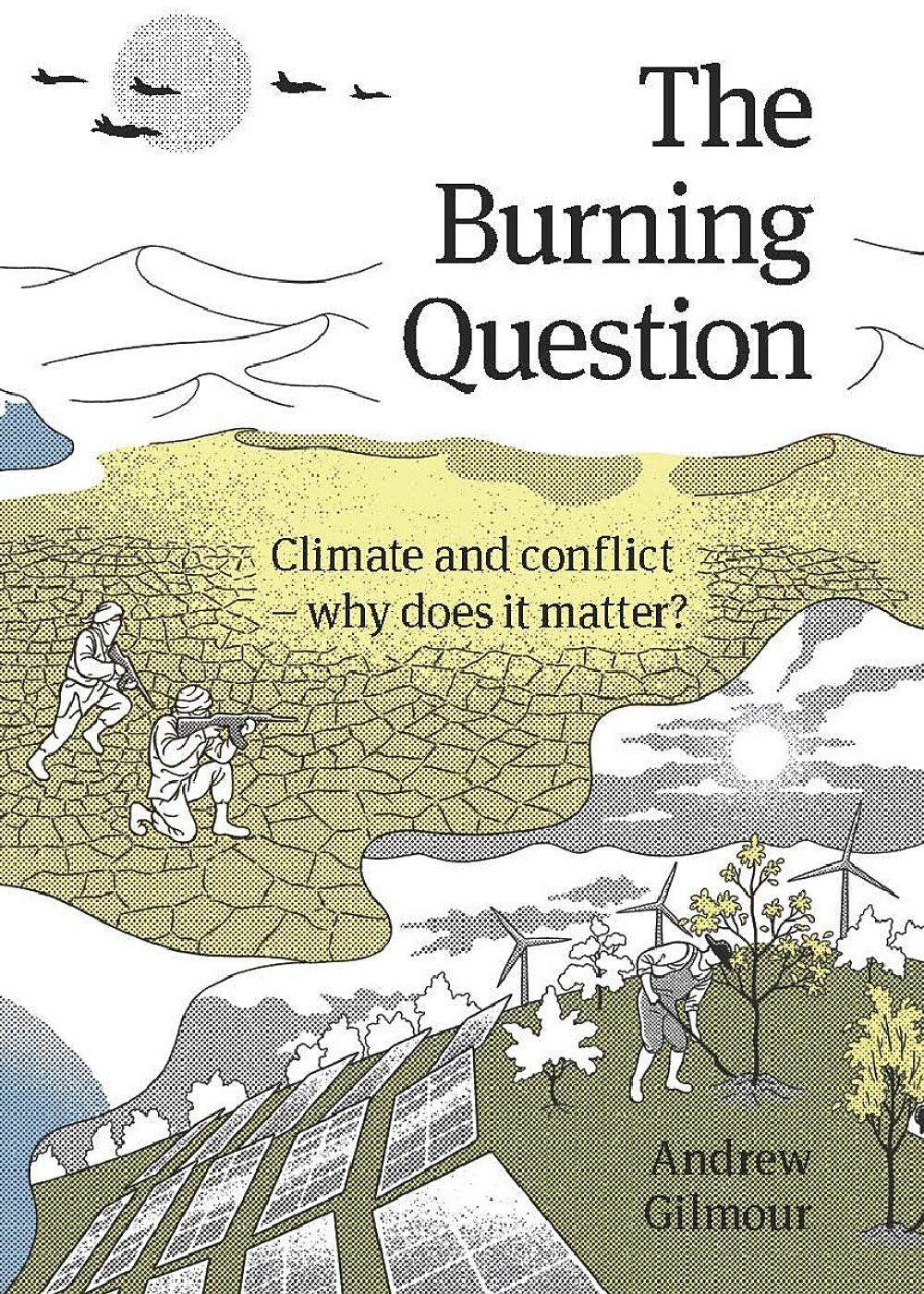Our Library
Explore our publications, from research papers and series to educational materials, covering all aspects of conflict transformation and peace promotion.
Highlights
Collections
-

National Dialogues at crossroads
This series analyses how to best integrate cross-cutting topics in the design of National Dialogues and how ... -
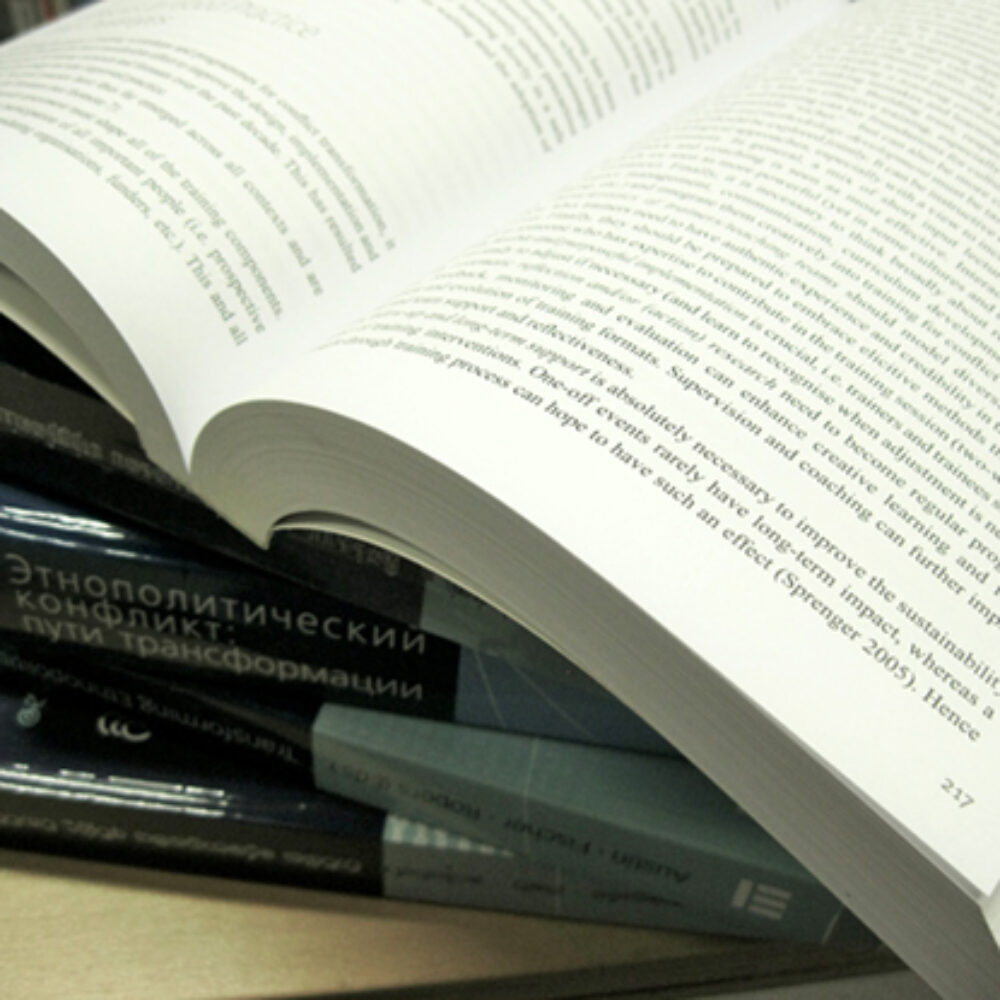
Berghof Handbook for Conflict Transformation
The Berghof Handbook for Conflict Transformation offers a continuously updated online publication platform ... -
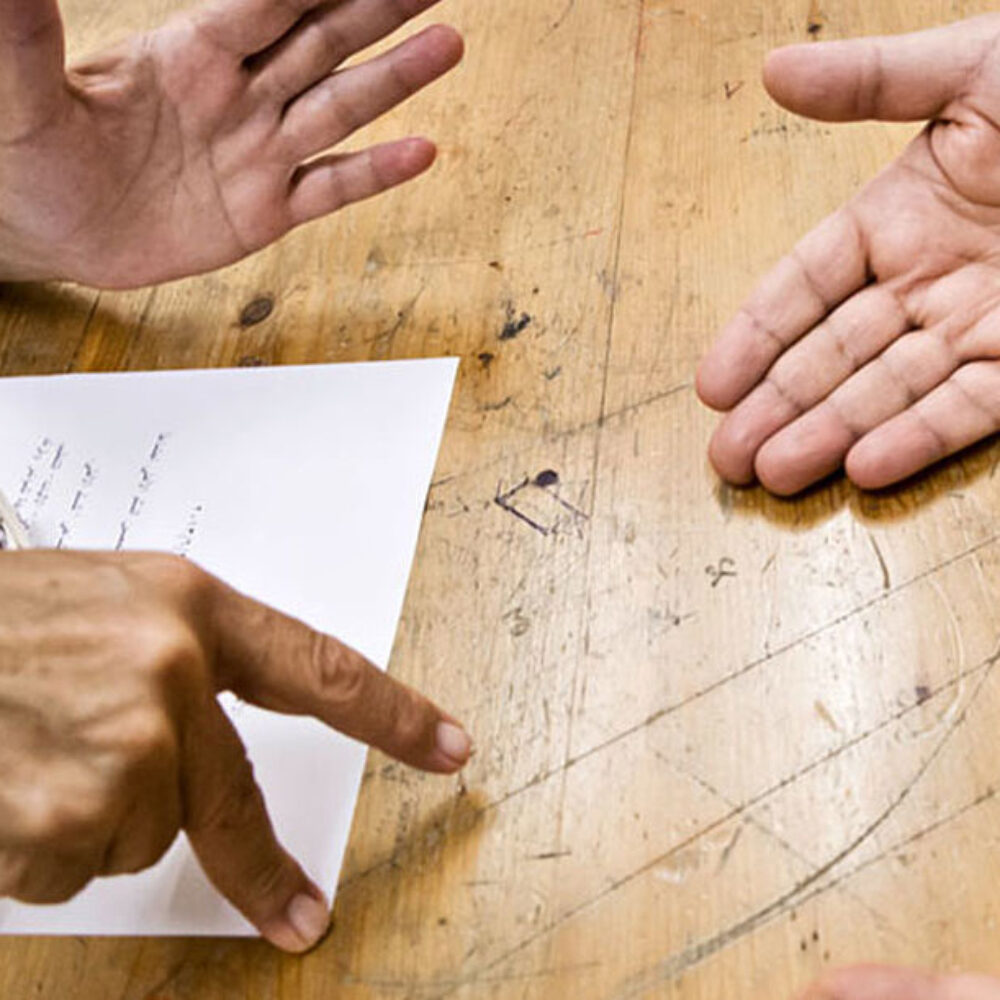
Handbook Dialogues
Handbook Dialogues raise key critical issues which are then debated among scholars and practitioners from ... -

Nexus of peacemaking and constitution building
How does peacemaking, particularly that includes mediated peace negotiations, interface with constitution ... -
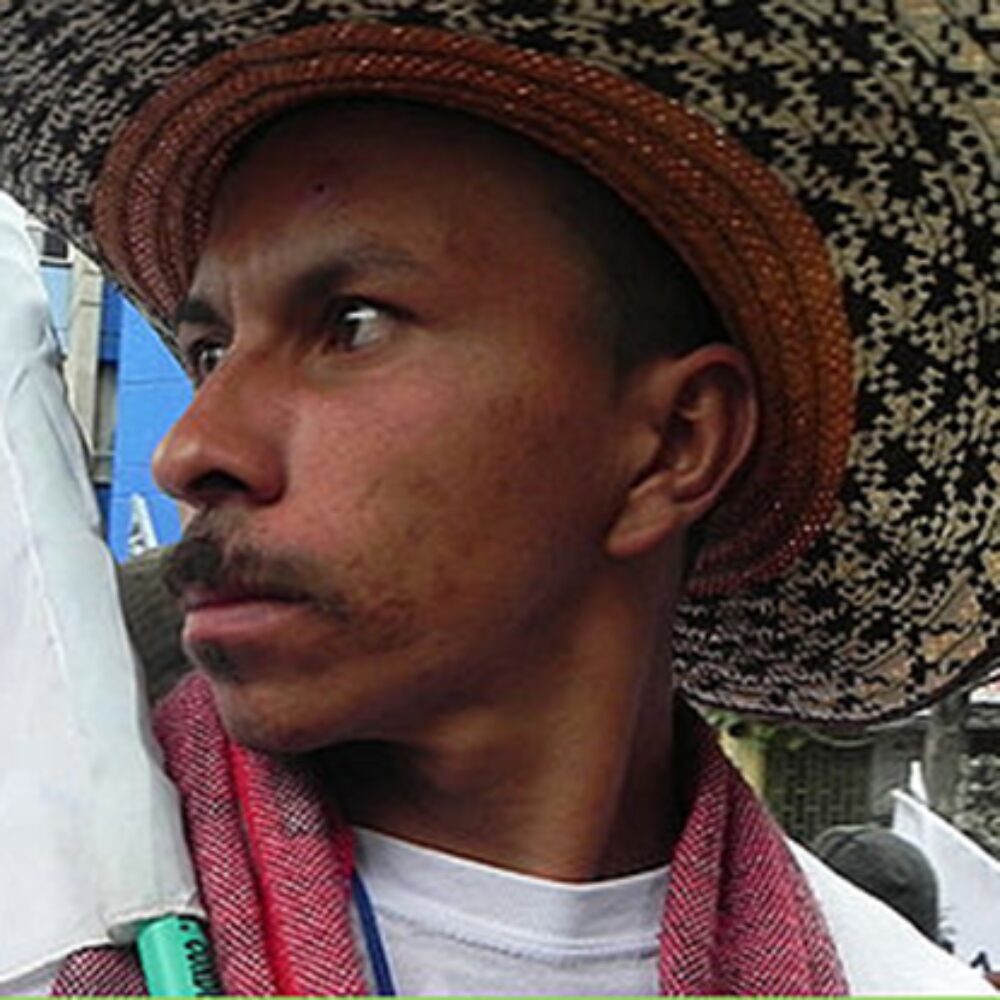
Inclusive Political Settlements
Several background, case study, comparative and policy-related publications were produced within the context ... -

Berghof Transitions Series
The Berghof Transitions Series was initiated in 2008, and originally included case studies produced for a ... -
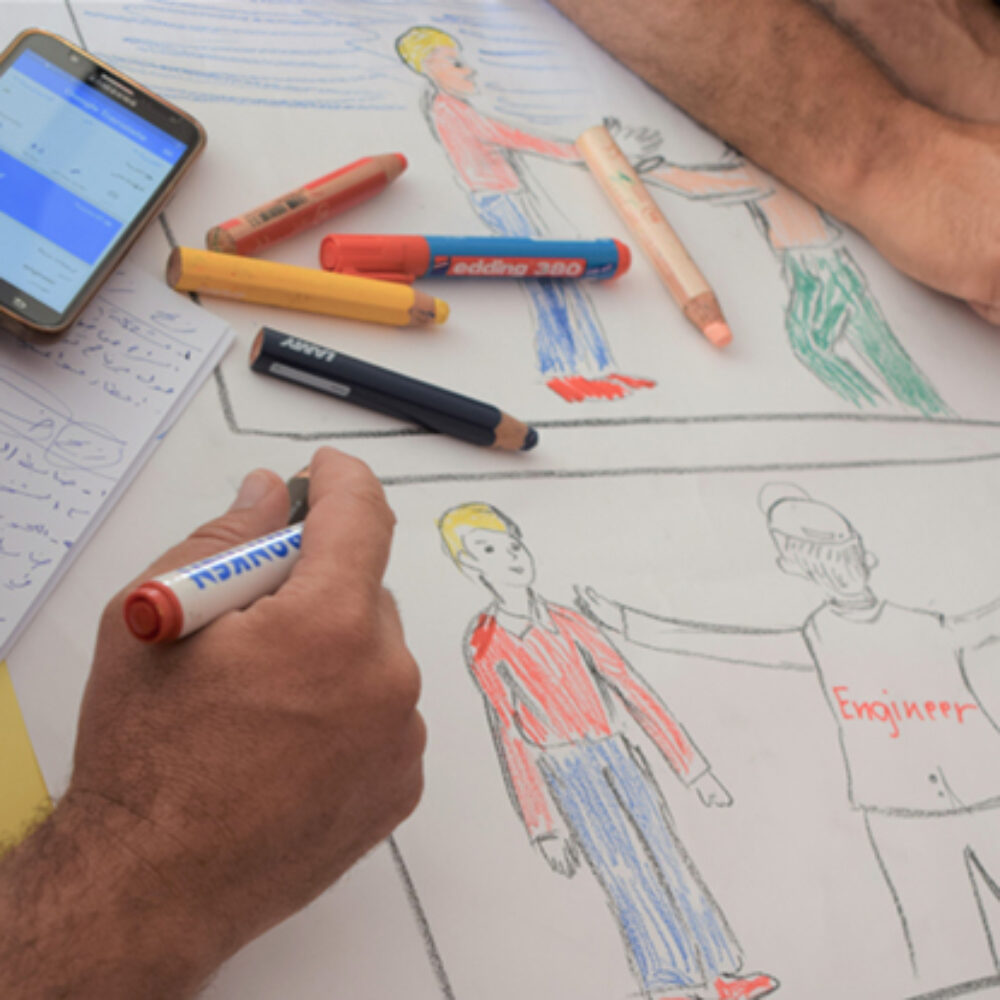
Peace education resources
From classroom materials and curricula, to pedagogical theory, the Berghof Foundation develops resources to ... -

National Dialogue Handbook
Grounded in a series of contemporary case studies, this Handbook aims to contribute to the nascent debate ...
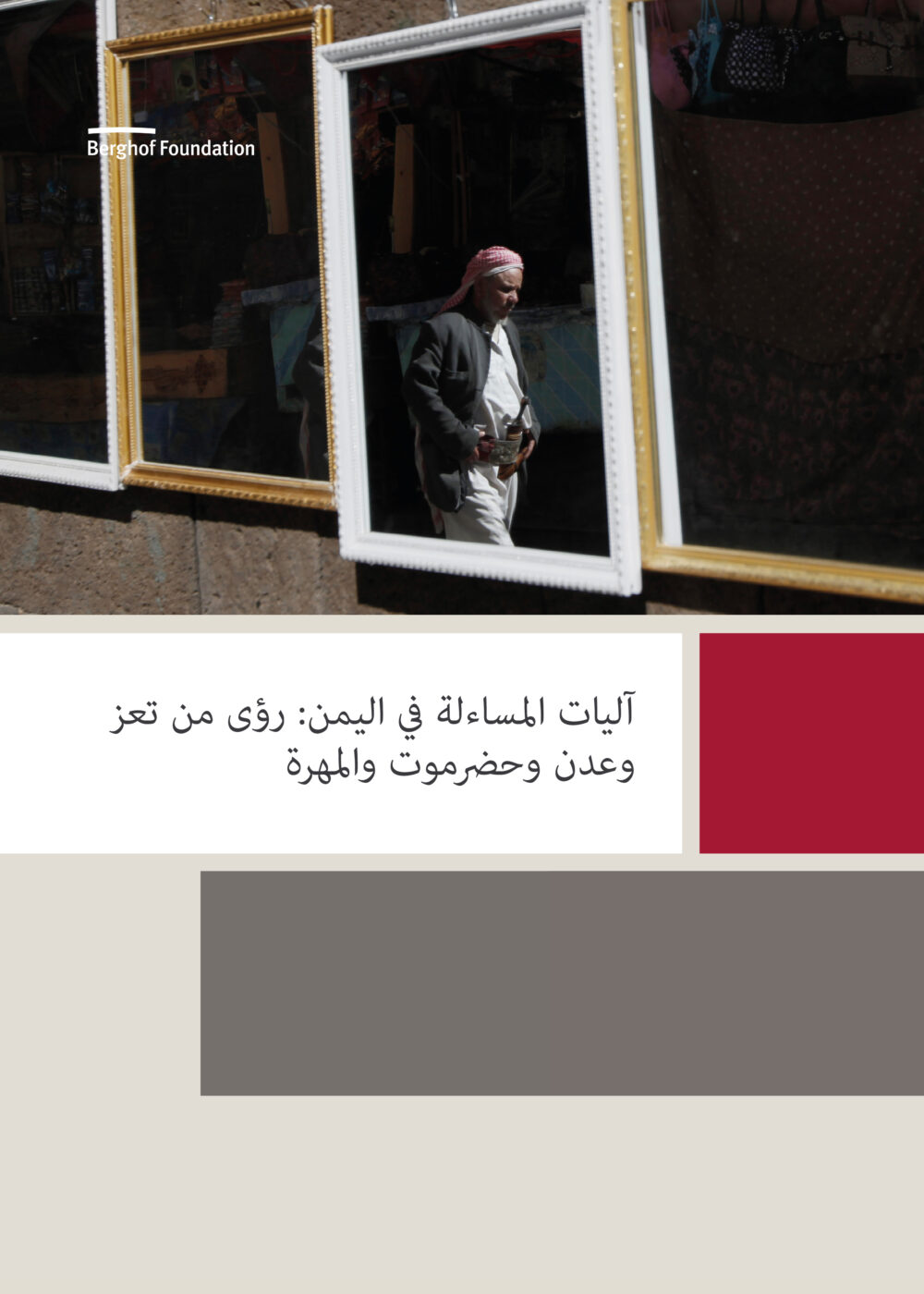
آليات المساءلة في اليمنرؤى من تعز وعدن وحضرموت والمهرة
لطالما احتلت اليمن مرتبة متأخرة في مؤشرات الفساد العالمية، إلا أن مستويات الفساد شهدت تدهوراً أكبر منذ اندلاع الحرب في عام 2014. وفي ظل الاهتمام المتزايد من قبل الحكومة اليمنية المعترف بها دولياً بإعادة هيكلة منظومة المساءلة الرسمية، وتنامي حرص الجهات الدولية المانحة على فهم طبيعة الأنظمة القائمة في اليمن تمهيداً لتقديم دعم أكثر مباشرة، تأتي هذه الدراسة لتتناول آليات المساءلة من حيث الإطارين القانوني والفعلي، مع التركيز على نماذج تطبيقية لهياكل المساءلة على مستوى المحافظات، لا سيما في تعز وعدن وحضرموت والمهرة.
- Year2025
- Author(s)DeepRoot Consulting
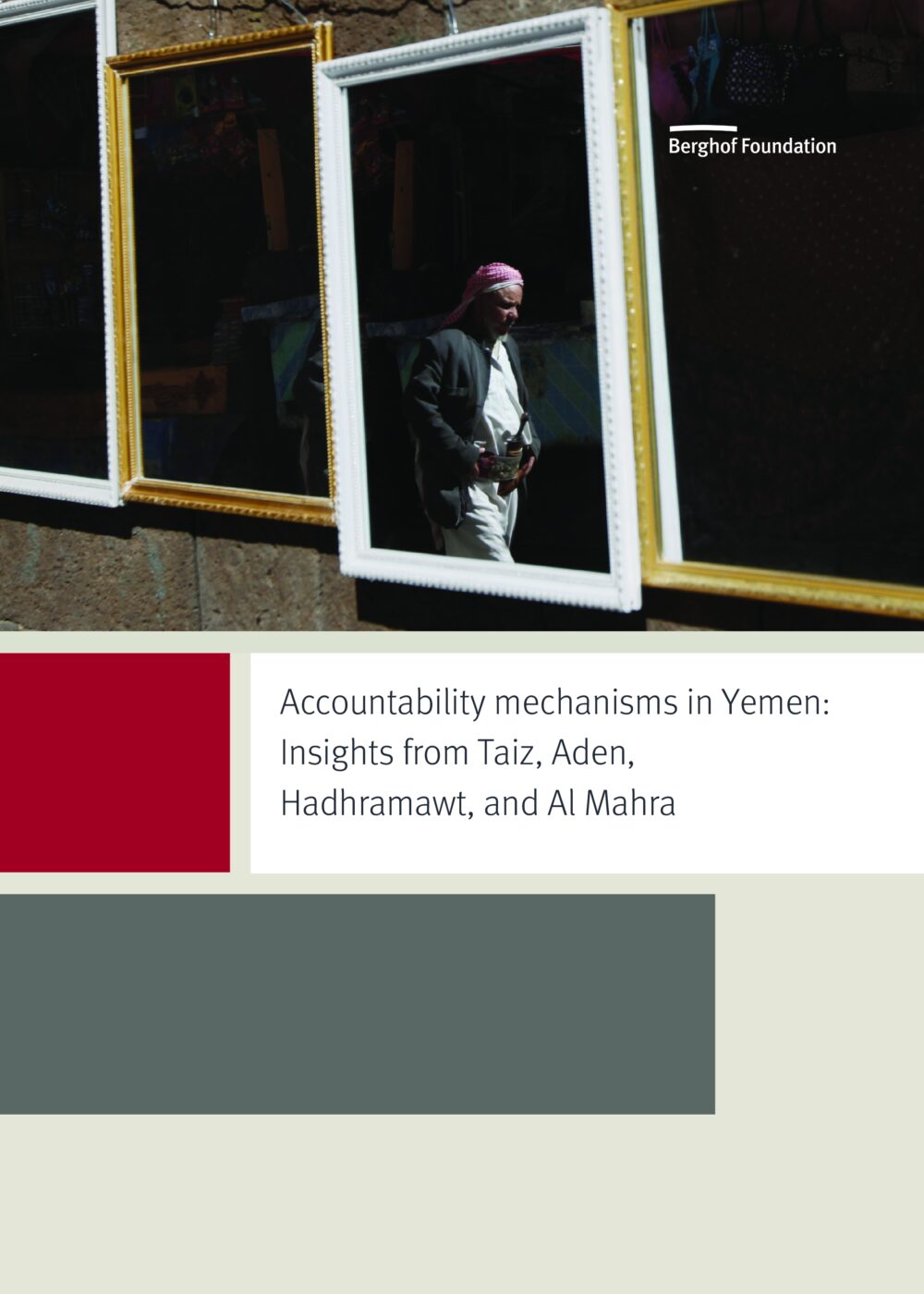
Accountability mechanisms in YemenInsights from Taiz, Aden, Hadhramawt, and Al Mahra
Yemen has long ranked low on global corruption indices but has fallen to even lower levels since the outbreak of the war in 2014. Given a renewed interest by the internationally recognised government of Yemen in reforming formal accountability structures – and by international donors in the systems in place in Yemen as they mull options for more direct support – this study looks into de jure and de facto accountability mechanisms in Yemen and explores concrete governorate-level examples of accountability structures in Taiz, Aden, Hadhramawt, and Al Mahra.
- Year2025
- Author(s)DeepRoot Consulting
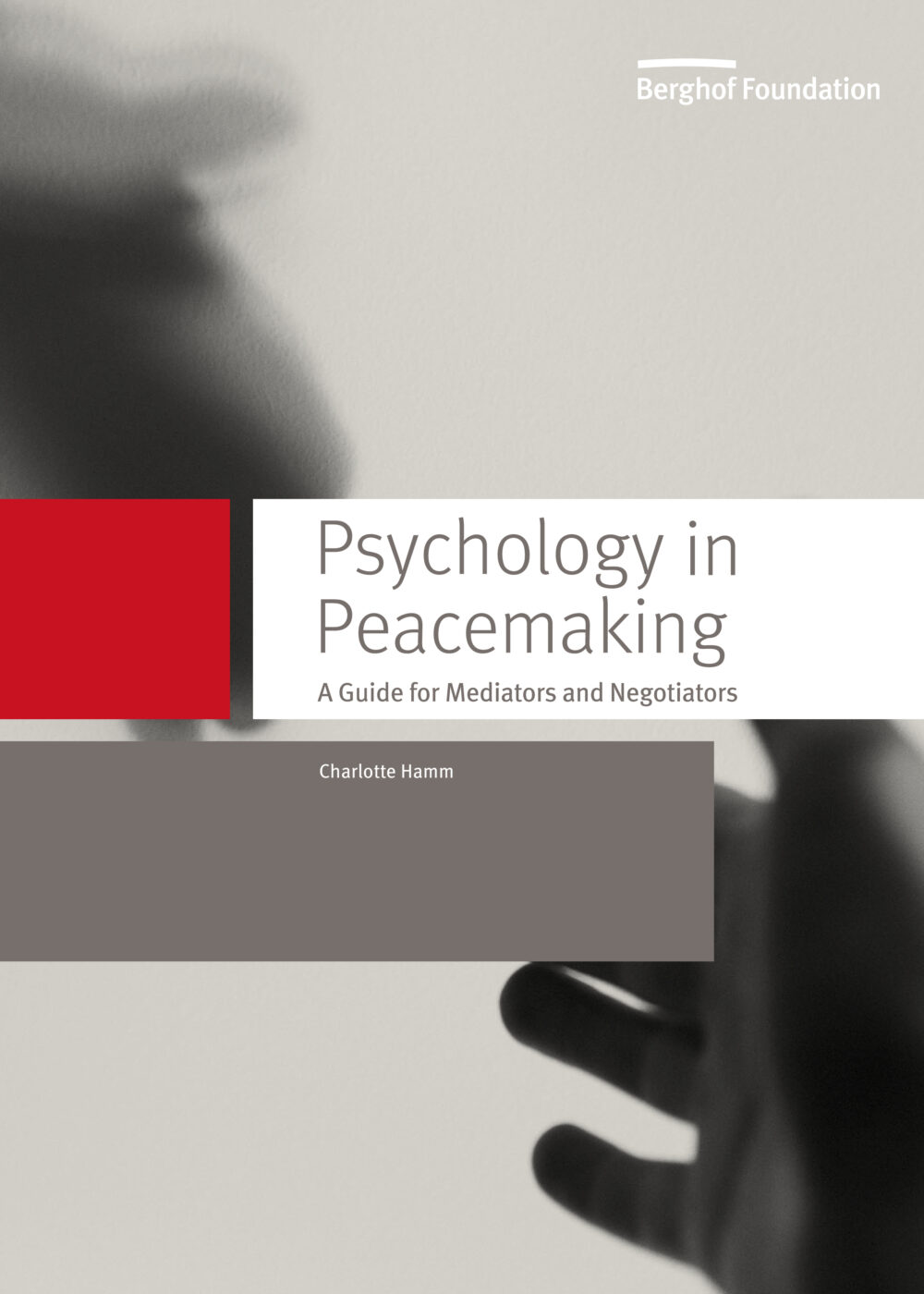
Psychology in PeacemakingA Guide for Mediators and Negotiators
In an era of shifting geopolitics, fragmented conflicts, and fast-track peace deals, the human dimension of peacemaking is too often overlooked. At the heart of any negotiation lies the human factor: a complex interplay of emotions, trust, trauma, and other psychological elements. Drawing on over 40 interviews with negotiators, mediators, and psychologists, this guide offers practical strategies and psychological insights to support those involved in peace processes, bridging the gap between psychological understanding and peacemaking. Designed as a hands-on toolbox, the guide provides adaptable tools to help negotiators and mediators navigate the emotional and relational complexities of peacemaking, from managing trauma and difficult personalities to fostering trust, mindset transformation, and rehumanisation.
- Year2025
- Author(s)Charlotte Hamm
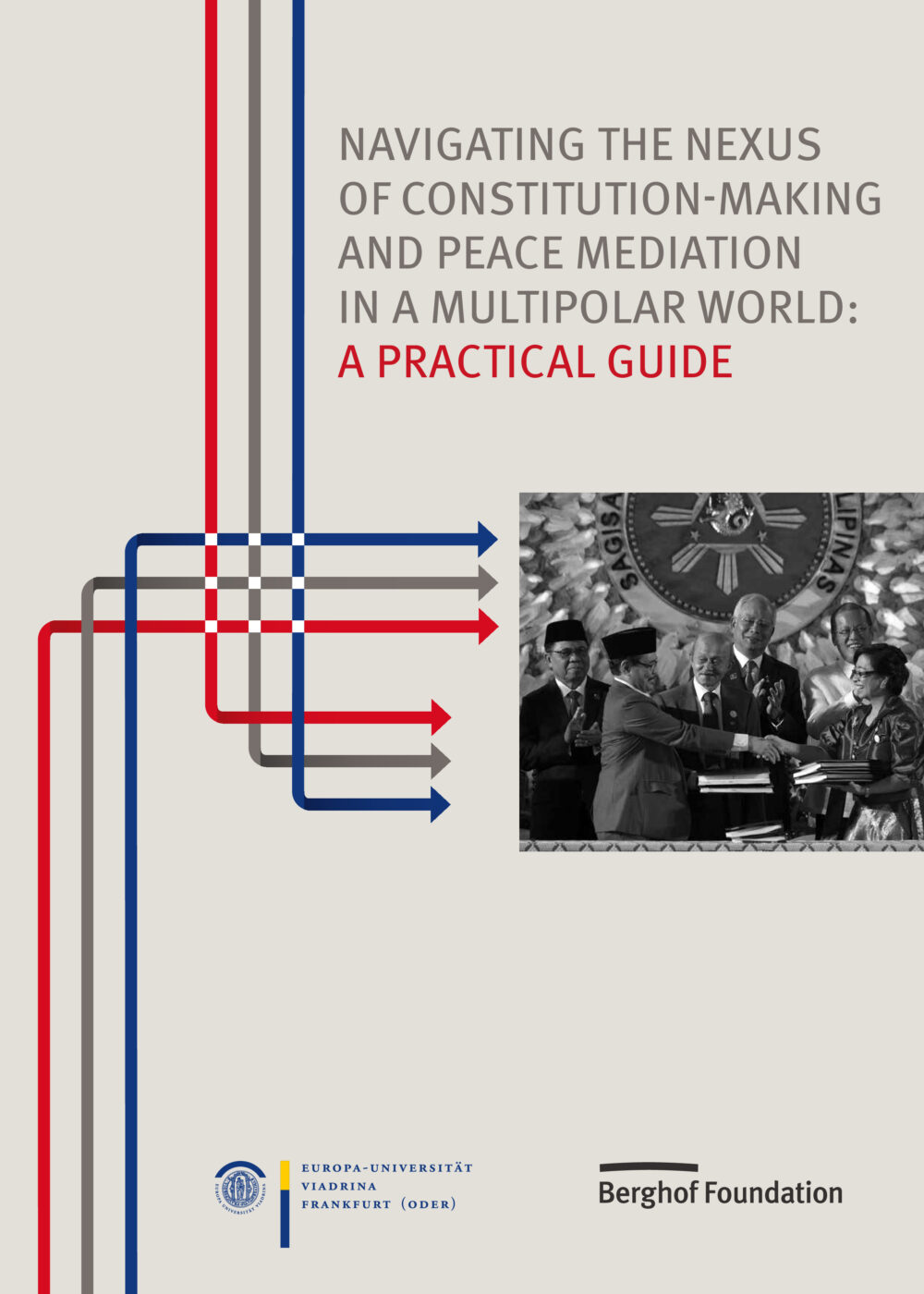
Navigating the nexus of constitution-making and peace mediation in a multipolar worldA practical guide
Peace mediation almost inevitably deals with issues of constitutional relevance, and constitution-making efforts in fragile contexts are intensely affected by parallel or previous peace talks. Nonetheless, constitution-making and peace mediation are not necessarily coordinated or well-integrated. Neglecting the ‘constitution-mediation nexus’ can have tremendous consequences, undermining and devaluating both processes and their aspired outcomes. This guidance aims to support constitution-making and peace mediation practitioners in navigating the nexus in times of geopolitical change by providing an analytical framework and methodological toolbox.
- Year2025
- Author(s)Claudia Wiehler, Lars Kirchhoff, Luxshi Vimalarajah, Anna Dick, Carla Schraml, Felix Würkert
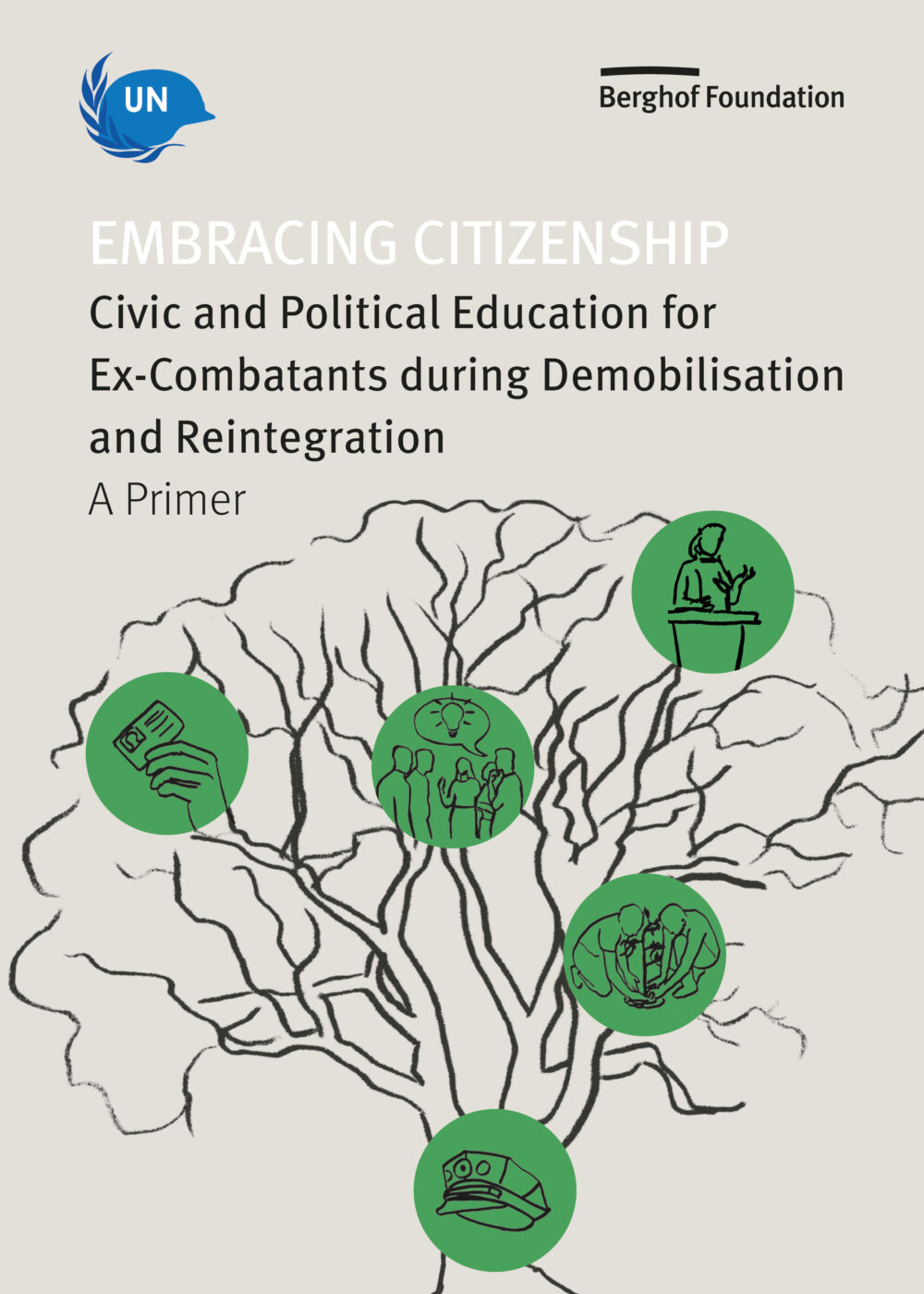
Embracing citizenshipCivic and political education for ex-combatants during demobilisation and reintegration
To achieve sustainable peace, it is crucial for ex-combatants to be able to support their communities, or even pursue their wartime claims, through non-violent ways. Depending on the nature of these claims, different reintegration trajectories and skillsets need to be applied. This Primer provides DDR practitioners with a brief overview on civic and political education as an enabler for ex-combatants and their communities to become peacebuilding agents.
- Year2025
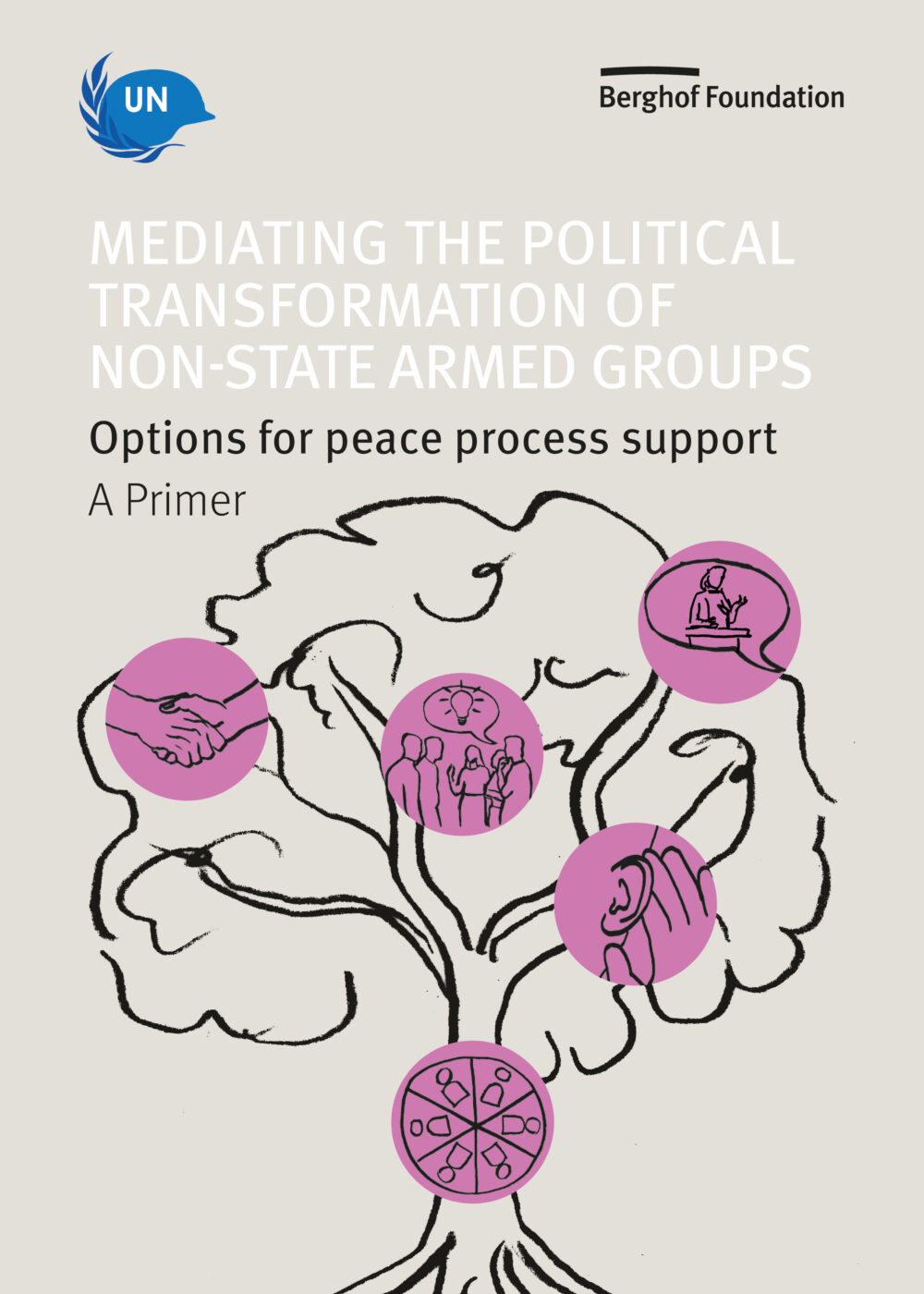
Mediating the political transformation of non-state armed groupsOptions for peace process support
The purpose of this primer is to provide guidance to mediators and other peace support actors, including (when relevant) DDR practitioners, on enabling a successful political transformation of armed groups as part of peace processes. It addresses key questions which need to be considered in peace mediation and the resulting negotiated agreements, such as: Who can best support political transformation during peace processes? When to consider such involvement? How to ensure that the content and sequencing of peace accords are conducive to effective political transformation?
- Year2025
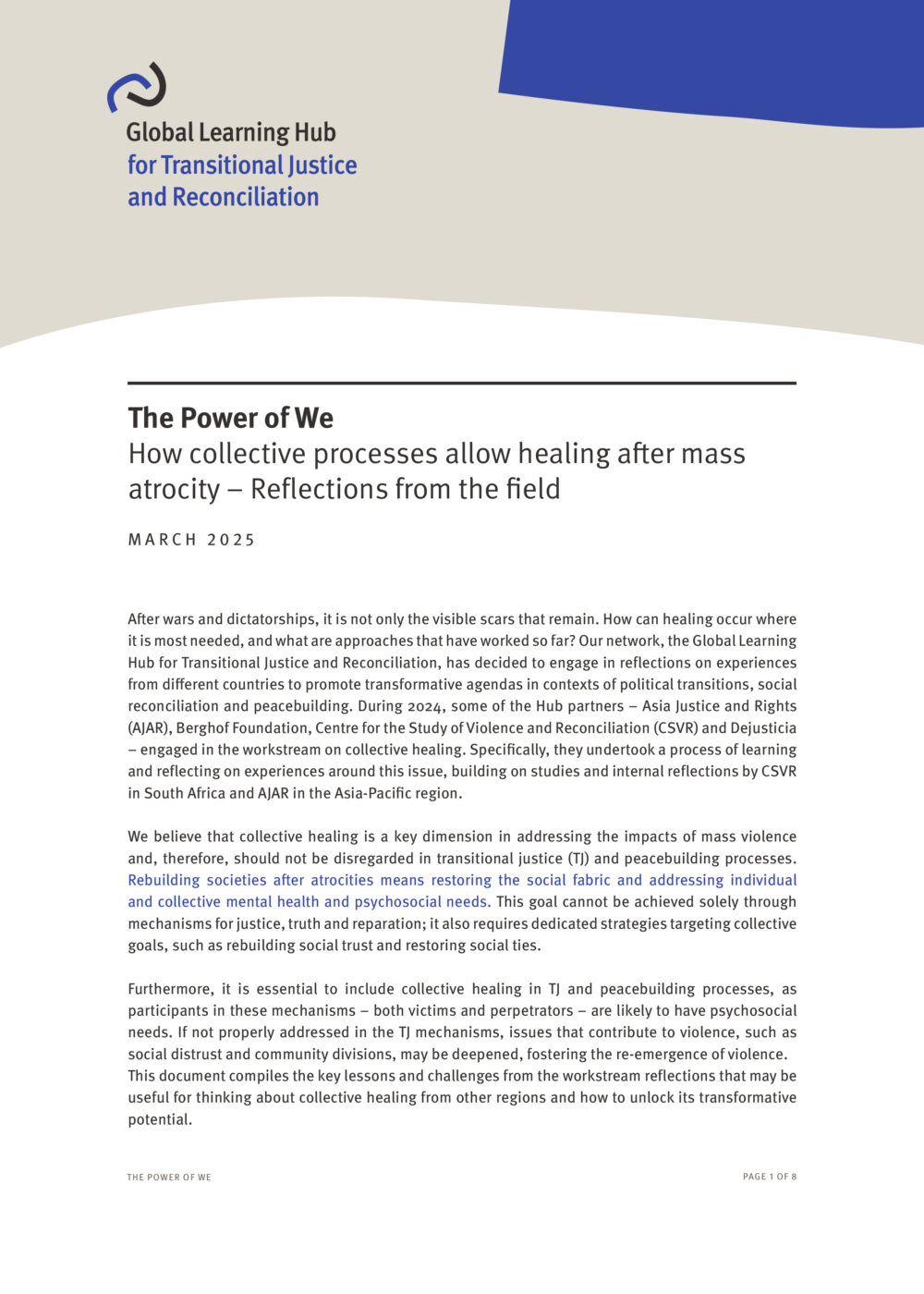
The Power of WeHow collective processes allow healing after mass atrocity – Reflections from the field
After wars and dictatorships, it is not only the visible scars that remain. How can healing occur where it is most needed, and what are approaches that have worked so far? Our network the Global Learning Hub for Transitional Justice and Reconciliation reflects on experiences from different countries to promote transformative agendas in contexts of political transitions, social reconciliation and peacebuilding.
- Year2025
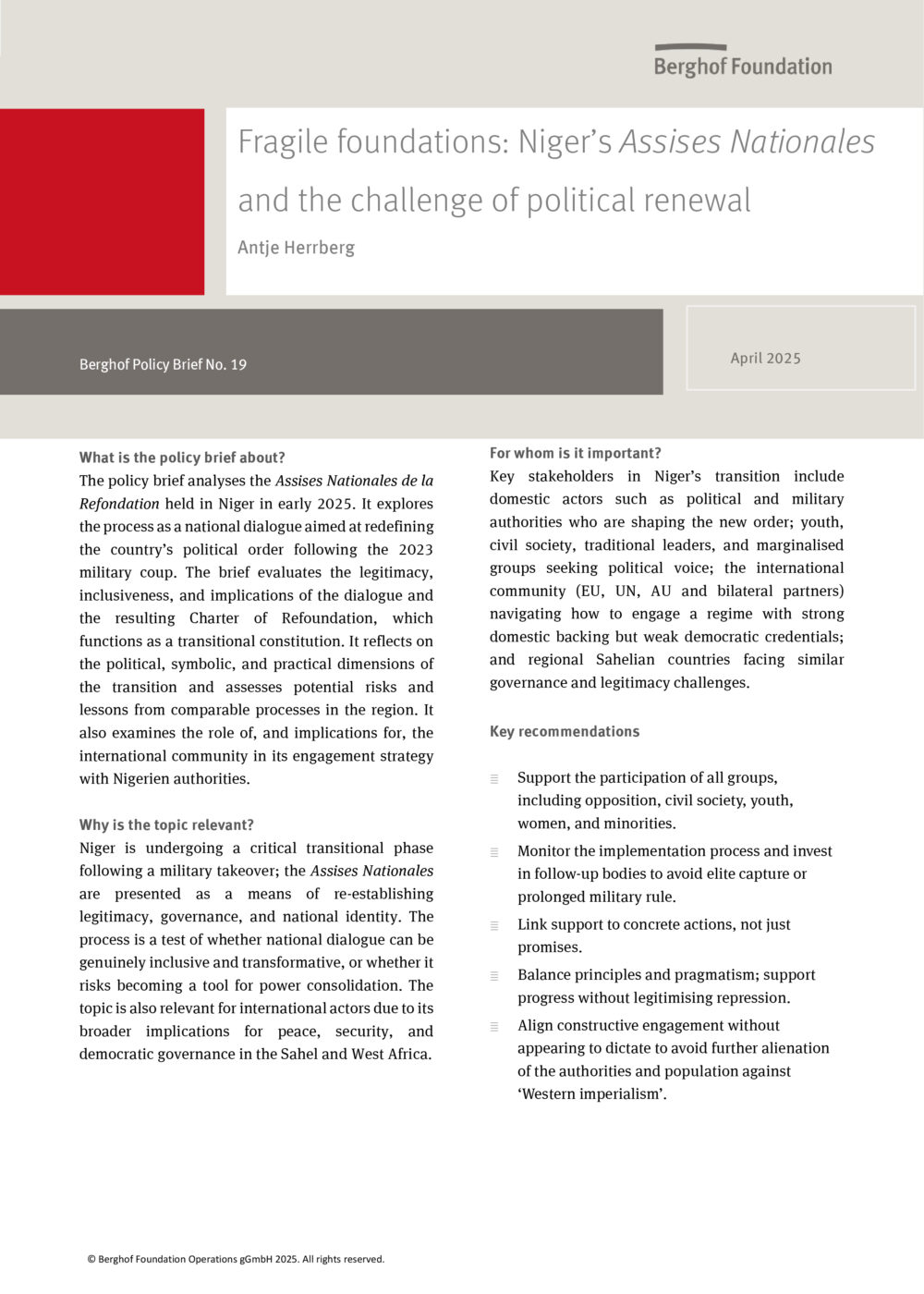
Policy Brief 19: Fragile foundationsNiger's Assises Nationales and the challenge of political renewal
The policy brief analyses the Assises Nationales de la Refondation held in Niger in early 2025. It explores the process as a national dialogue aimed at redefining the country’s political order following the 2023 military coup. The brief evaluates the legitimacy, inclusiveness, and implications of the dialogue and the resulting Charter of Refoundation, which functions as a transitional constitution.
- Year2025
- Author(s)Antje Herrberg
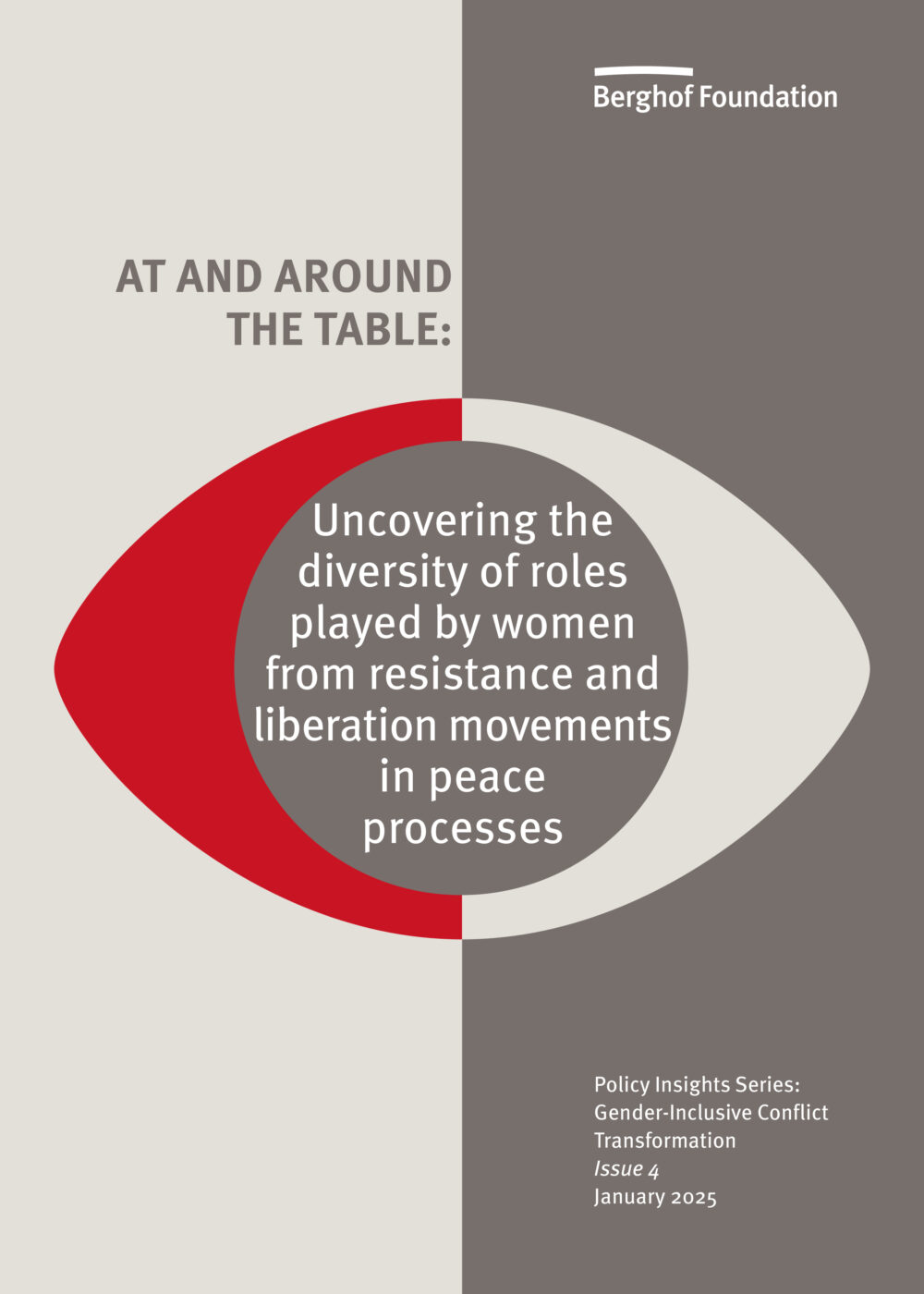
At and around the tableUncovering the diversity of roles played by women from resistance and liberation movements in peace processes
This paper, the fourth in our policy insight series on gender-inclusive conflict transformation, examines the formal and informal roles played by women in and associated with resistance and liberation movements (RLMs) during peace processes. We conducted focus group discussions, interviews and peer-learning workshops with women from South Africa, Northern Ireland, Colombia, the Philippines, Kosovo and other contexts in Latin America, Europe and Southeast Asia who contributed to peace processes either as formal negotiators or informal peace leaders.
- Year2025
- Author(s)Claudia Cruz Almeida, Fee Högner
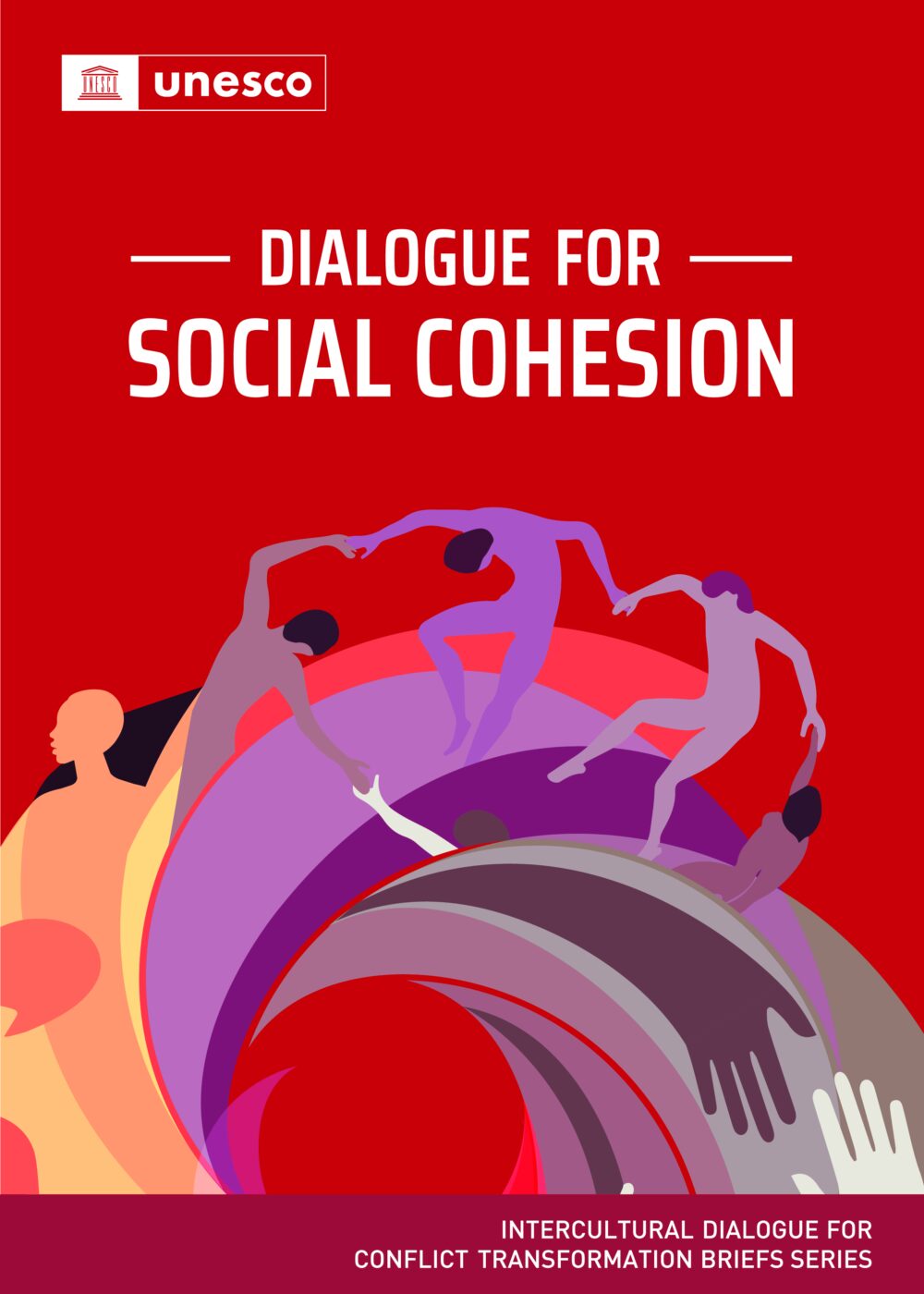
Dialogue for social cohesionIntercultural dialogue for conflict transformation briefs series
At a time when division threatens the fabric of societies, dialogue offers a path forward. The Dialogue for Social Cohesion brief, developed by UNESCO in collaboration with the Berghof Foundation and Search for Common Ground, blends real-world case studies with practical recommendations.
- Year2025
